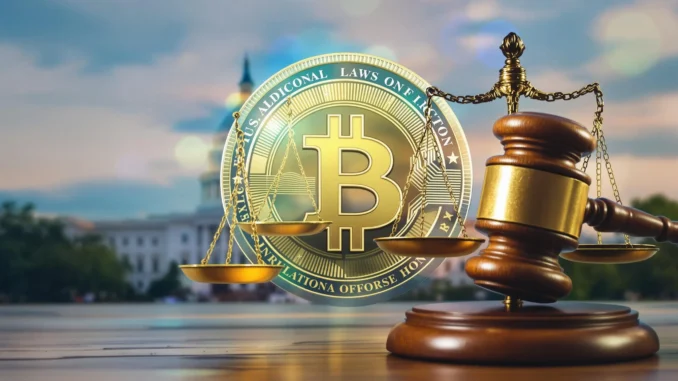
Is the Wild West era of digital assets in politics coming to an end? U.S. lawmakers are stepping in with a bold new proposal that could dramatically reshape the landscape of digital asset ownership for public officials. Get ready for the Modern Emoluments and Malfeasance Enforcement (MEME) Act – a groundbreaking piece of legislation designed to prevent conflicts of interest and ensure integrity within the government. Let’s dive into what this all means for the future of crypto and governance.
What is the MEME Act and Why is it Needed for Digital Assets?
The MEME Act, spearheaded by Rep. Sam Liccardo and other House Democrats, is a direct response to growing concerns about potential ethical breaches involving digital assets. Imagine a scenario where a public official, privy to market-moving information, invests in a memecoin or endorses a particular cryptocurrency project. Sounds problematic, right? That’s precisely the conflict of interest the MEME Act seeks to prevent.
Liccardo explicitly pointed to former President Donald Trump and Melania Trump’s memecoin ventures as examples of potential conflicts. The core issue? Leveraging public office and influence for personal financial gain in the burgeoning world of digital currencies. This act aims to draw a clear line, ensuring that public service remains just that – service to the public, not a vehicle for personal enrichment through digital asset markets.
Key Provisions of the MEME Act: Banning Crypto Profits for Officials
The heart of the MEME Act lies in its prohibition against public officials and their immediate families from engaging in specific activities related to digital assets. Here’s a breakdown of what the bill intends to ban:
- Issuing Digital Assets: Public officials and their families would be barred from creating or launching their own cryptocurrencies or digital tokens.
- Endorsing Digital Assets: No more celebrity-style endorsements from politicians for specific crypto projects. This prevents officials from using their platform to pump up the value of digital assets they or their families might hold.
- Profiting from Digital Assets: The most significant aspect – officials and their families are prohibited from directly profiting from the trading or holding of digital assets. This is designed to eliminate any incentive to use inside information or political influence to manipulate the crypto regulation landscape for personal gain.
Essentially, the MEME Act seeks to establish a firewall between public office and the volatile, yet potentially lucrative, world of digital currencies.
Why Now? The Urgency Behind Crypto Regulation and Public Officials
The timing of the MEME Act isn’t arbitrary. The increasing mainstream adoption of cryptocurrencies, coupled with the lack of comprehensive crypto regulation in the U.S., has created a fertile ground for potential ethical dilemmas. As digital assets become more integrated into the financial system, the risks of insider trading, market manipulation, and conflicts of interest involving public officials amplify.
Consider these points that highlight the urgency:
- Rapid Growth of the Crypto Market: The digital asset market has exploded in value and complexity, demanding updated ethical guidelines for those in positions of power.
- Lack of Clear Regulatory Framework: The absence of a unified regulatory approach to crypto in the U.S. leaves loopholes that can be exploited.
- Increasing Political Engagement with Crypto: As politicians become more vocal and involved in the crypto space, the need for clear ethical boundaries becomes paramount.
- Protecting Public Trust: Maintaining public confidence in government requires robust measures to prevent even the appearance of impropriety.
The MEME Act is a proactive step to address these concerns before potential scandals erode public trust in both government and the burgeoning digital asset industry.
Challenges and Potential Pushback Against the MEME Act
While the MEME Act aims to enhance ethical standards, it’s not without its challenges and potential opposition. Navigating the complexities of crypto regulation and imposing restrictions on public officials can be tricky. Here are some potential hurdles:
| Challenge | Description |
|---|---|
| Defining “Digital Assets” | The crypto space is constantly evolving. Creating a definition of “digital assets” that is both comprehensive and future-proof will be crucial and potentially contentious. |
| Enforcement Mechanisms | How will the MEME Act be enforced? What agency will be responsible for oversight, and what penalties will be in place for violations? Clear enforcement mechanisms are essential for the act to be effective. |
| Scope of Restrictions | Defining the scope of “profiting” and “family members” could lead to debates and potential loopholes. Finding the right balance between preventing conflicts and respecting individual rights is key. |
| Political Opposition | Depending on the political climate and lobbying efforts, the MEME Act might face significant opposition from various stakeholders, including those within the crypto industry and potentially some public officials themselves. |
Overcoming these challenges will require careful drafting, robust debate, and a commitment to ethical governance.
The Path Forward: What to Expect as the MEME Act is Introduced
With the MEME Act slated for introduction on February 27th, the journey through the legislative process is just beginning. Here’s what we can anticipate in the coming weeks and months:
- Public Debate and Scrutiny: The MEME Act will undoubtedly spark intense discussion among lawmakers, legal experts, the crypto industry, and the public. Expect media coverage and varying opinions on its merits and potential drawbacks.
- Committee Review: The bill will likely be referred to relevant House committees for review and potential amendments. This stage will be crucial in shaping the final form of the legislation.
- Potential Amendments and Compromises: To gain broader support, the MEME Act might undergo revisions and compromises. Stakeholder input and political negotiations will play a significant role in this process.
- Vote in the House and Senate: If it clears committee review, the bill will proceed to votes in both the House and the Senate. Its success will depend on bipartisan support and the political will to address ethical concerns in the digital asset space.
- Potential Legal Challenges: If passed into law, the MEME Act could face legal challenges, particularly concerning its scope and potential impact on individual rights.
Conclusion: A Bold Step Towards Ethical Crypto Governance
The MEME Act represents a groundbreaking and necessary step towards establishing ethical boundaries for public officials in the age of digital assets. By aiming to prevent conflicts of interest and ensure that those in power serve the public interest above personal financial gain, this legislation has the potential to foster greater trust and integrity in both government and the crypto industry. While challenges and debates are expected, the MEME Act signals a growing recognition of the need for responsible crypto regulation and ethical conduct in the digital era. Keep an eye on February 27th – it could mark a turning point in how Washington approaches digital assets and the ethics of its leaders.



